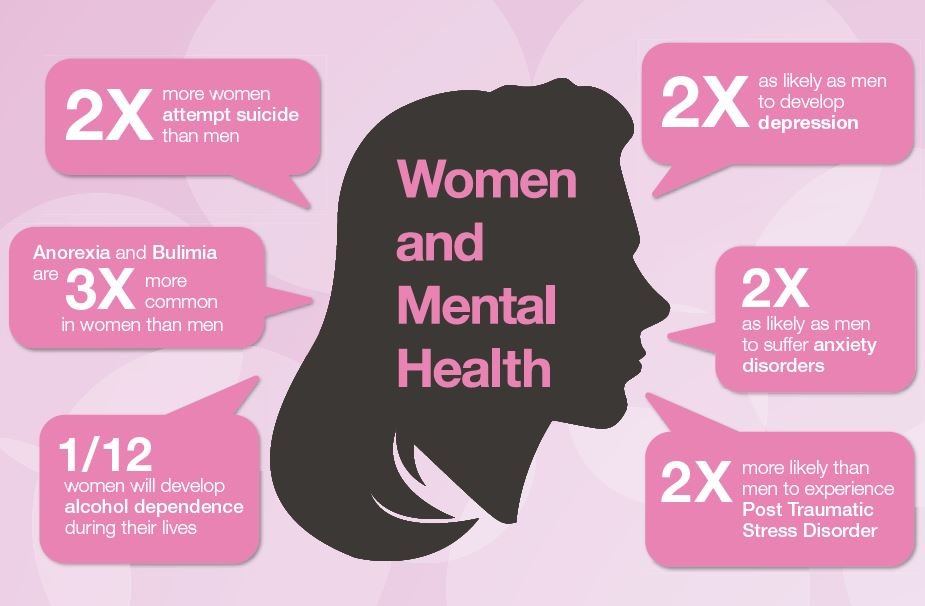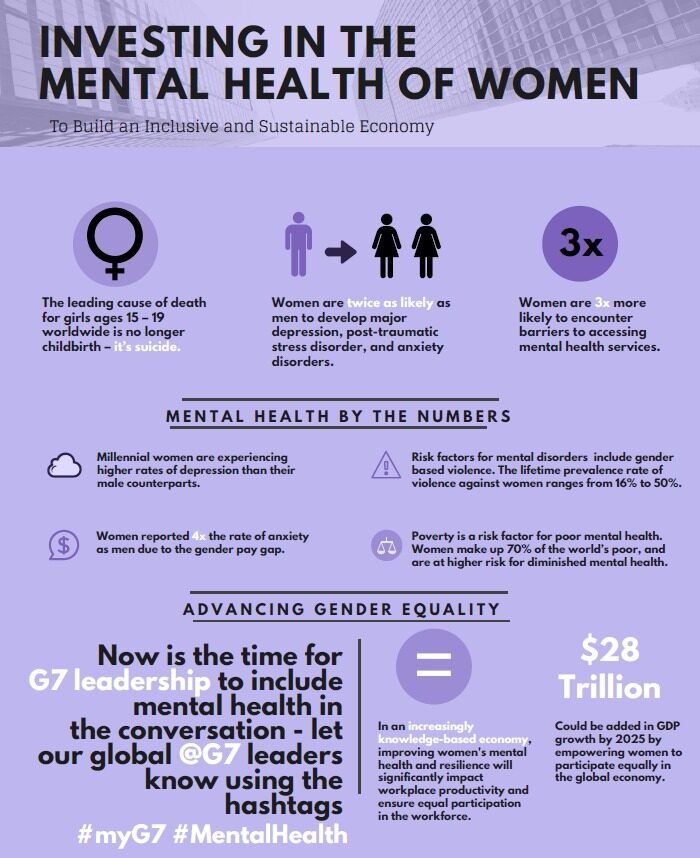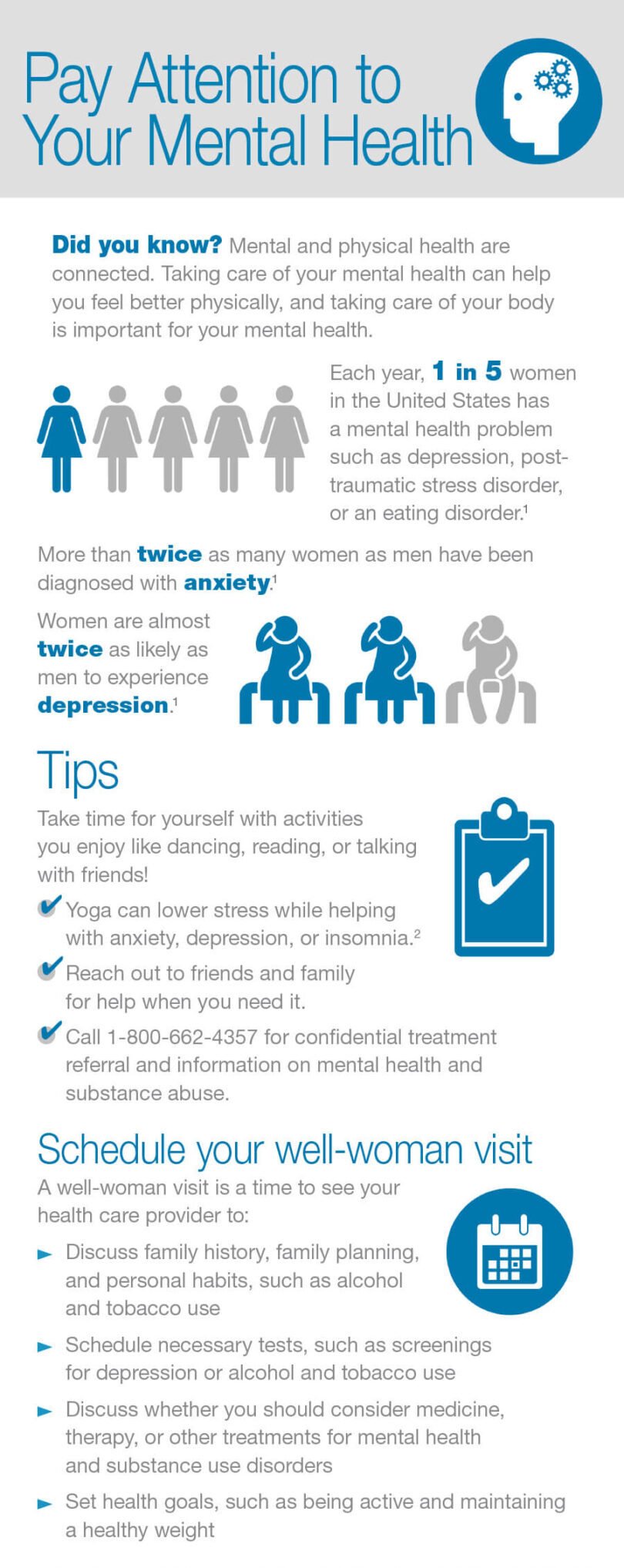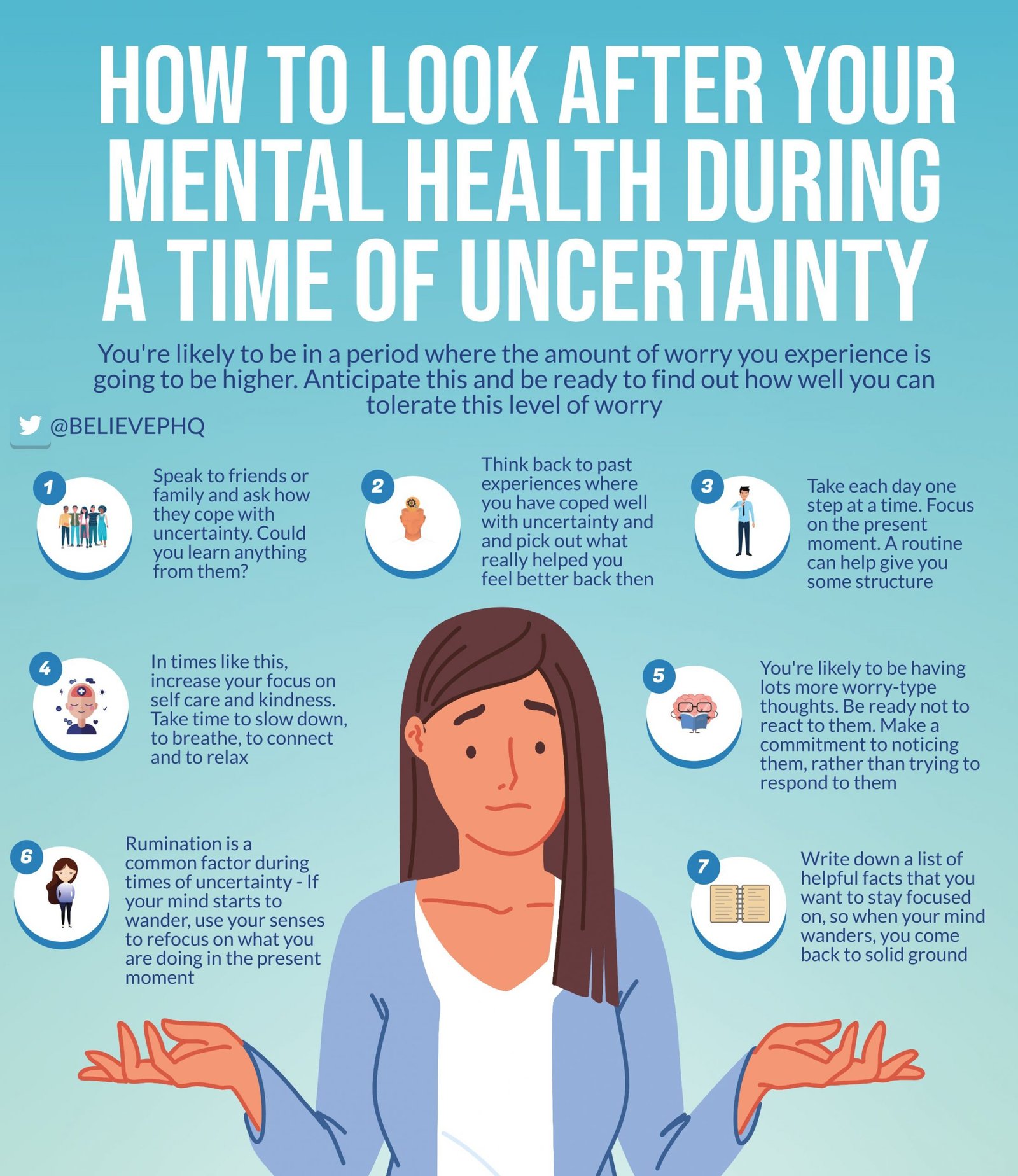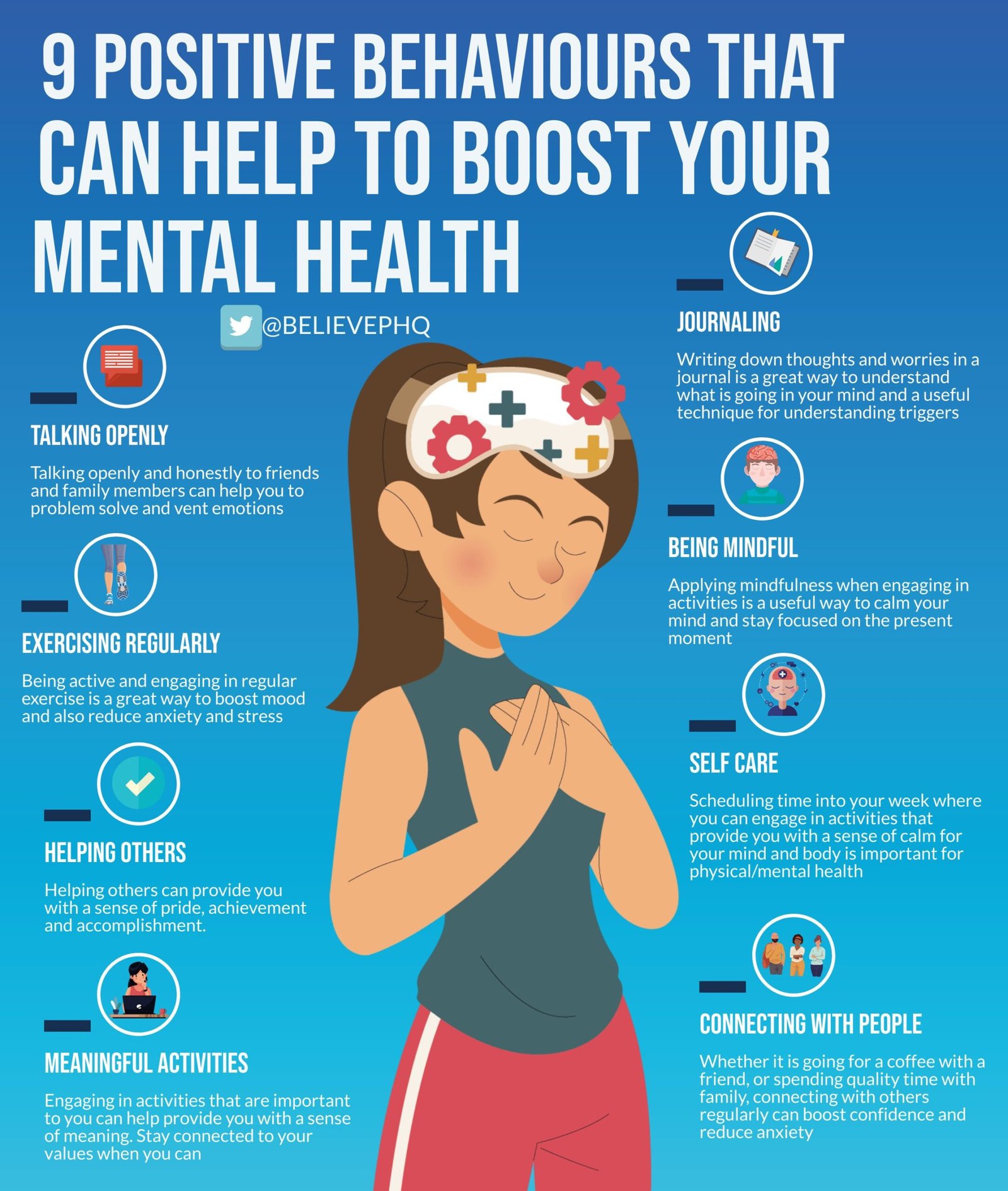Navigating Women’s Mental Health: Understanding Common Issues and Embracing Self-Care : Mental health is a critical aspect of overall well-being, yet it often goes underappreciated, especially among women. Women face unique mental health challenges due to a combination of biological, social, and cultural factors. Common mental health issues that disproportionately affect women include eating disorders, depression, and anxiety. Understanding these challenges and adopting effective self-care measures can significantly improve mental well-being.
Common Mental Health Issues in Women
-
Eating Disorders
Eating disorders, such as anorexia nervosa, bulimia nervosa, and binge-eating disorder, are serious conditions that disproportionately affect women. They often stem from societal pressures and unrealistic beauty standards, leading to unhealthy relationships with food and body image.
-
- Anorexia Nervosa: Characterised by extreme food restriction, intense fear of gaining weight, and a distorted body image. It can lead to severe malnutrition and other health complications.
- Bulimia Nervosa: Involves cycles of binge eating followed by purging through vomiting, laxative use, or excessive exercise. This cycle can cause severe physical and psychological harm.
- Binge-Eating Disorder: Marked by recurrent episodes of eating large quantities of food, often quickly and to the point of discomfort, accompanied by feelings of loss of control.
Primary treatment for eating disorders includes psychotherapy, nutritional counseling, and medical monitoring. Psychotherapy, especially cognitive-behavioral therapy (CBT), is the most common and effective method, helping patients understand the thoughts and feelings that influence their eating behaviors. Dialectical behavior therapy (DBT) and family-based therapy (FBT) are also widely used. These therapies focus on building healthy coping mechanisms, improving emotional regulation, and involving family members in the recovery process.
-
-
Depression
Depression is a pervasive mental health issue affecting millions of women worldwide. It manifests as persistent sadness, loss of interest in activities, changes in appetite or sleep patterns, and feelings of worthlessness. Hormonal changes, life events, and genetic predisposition can all contribute to depression in women.
-
- Postpartum Depression: A type of depression that occurs after childbirth, affecting a mother’s ability to care for her baby and herself.
- Premenstrual Dysphoric Disorder (PMDD): A severe form of premenstrual syndrome (PMS) characterised by intense emotional and physical symptoms that interfere with daily life.
Psychotherapy, medication, and lifestyle changes are all used as treatments for depression. Cognitive-behavioral therapy (CBT), is widely used, whilst antidepressant medications, such as selective serotonin reuptake inhibitors (SSRIs) and serotonin-norepinephrine reuptake inhibitors (SNRIs) are often prescribed to help balance brain chemicals linked to mood regulation.
Additionally, lifestyle changes can significantly improve depressive symptoms, as detailed below. Combining these treatments, tailored to the individual’s needs, often yields the best outcomes in managing depression.
-
-
Anxiety
Anxiety disorders are common among women and can manifest in various forms, including generalised anxiety disorder (GAD), panic disorder, and social anxiety disorder. Women are more likely to experience chronic stress, often balancing multiple roles and responsibilities, which can contribute to anxiety.
-
- Generalised Anxiety Disorder: Characterised by excessive, uncontrollable worry about everyday things.
- Panic Disorder: Involves sudden, repeated panic attacks with intense fear and physical symptoms such as heart palpitations and shortness of breath.
- Social Anxiety Disorder: Marked by intense fear of social situations, leading to avoidance and significant distress.
As with the other mental health issues already mentioned, the most commonly used treatments for anxiety include a combination of psychotherapy, medications, and lifestyle changes. Certainly, lifestyle changes can significantly reduce anxiety symptoms and, in some cases, holistic approaches like yoga, acupuncture, and herbal supplements are also explored as complementary treatments.
-
Self-Care Measures for Women’s Mental Health
Adopting self-care practices tailored to women’s unique mental health needs can foster resilience and improve overall well-being. Here are some effective self-care measures:
-
Nurturing Relationships
Strong, supportive relationships with family, friends, and community are crucial. Women often thrive on social connections, so maintaining healthy relationships can provide emotional support and reduce feelings of isolation.
-
Balanced Nutrition
Eating a balanced diet rich in nutrients supports both physical and mental health. Foods high in omega-3 fatty acids, such as salmon and walnuts, and those rich in antioxidants, like berries and leafy greens, can help improve mood and reduce anxiety.
-
Regular Physical Activity
Exercise is a powerful tool for managing stress, anxiety, and depression. Activities like walking, yoga, and dancing can release endorphins, boost mood, and improve overall mental health.
-
Mindfulness and Meditation
Practicing mindfulness and meditation can help women stay grounded and manage stress. Techniques such as deep breathing, progressive muscle relaxation, and guided imagery can reduce anxiety and enhance emotional well-being.
-
Adequate Sleep
Quality sleep is essential for mental health. Establishing a regular sleep routine and creating a restful environment can improve sleep quality and reduce symptoms of depression and anxiety.
-
Professional Support
Seeking professional help from therapists, or online counseling for women’s mental health from best professional experts, or support groups can provide women with the tools and strategies needed to manage mental health challenges effectively. Cognitive-behavioral therapy (CBT) and other evidence-based treatments can be particularly beneficial.
-
Setting Boundaries
Learning to say no and setting healthy boundaries can prevent burnout and reduce stress. It’s important for women to prioritise their own needs and well-being without feeling guilty.
-
Engaging in Hobbies
Pursuing hobbies and interests that bring joy and relaxation can serve as a powerful antidote to stress. Whether it’s painting, gardening, reading, or cooking, engaging in enjoyable activities can significantly boost mental health.
Conclusion
Women’s mental health issues, such as eating disorders, depression, and anxiety, require attention and care. By understanding these challenges and adopting effective self-care measures, women can enhance their mental well-being and lead fulfilling lives. Remember, seeking help is a sign of strength, and taking time for self-care is not just beneficial but essential. Embrace these strategies and prioritise your mental health every day.
Related Infographics:
